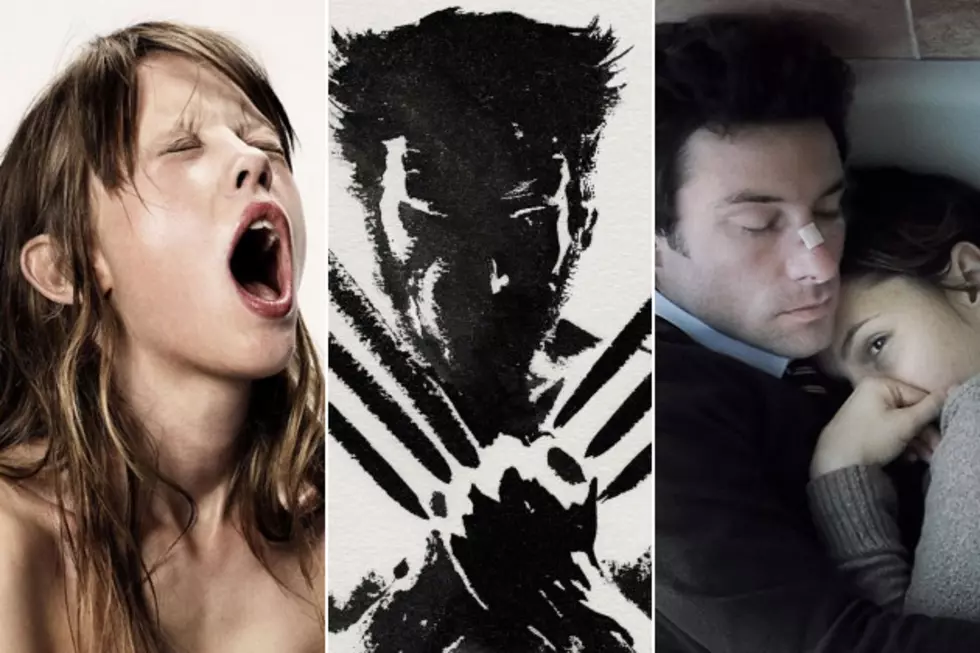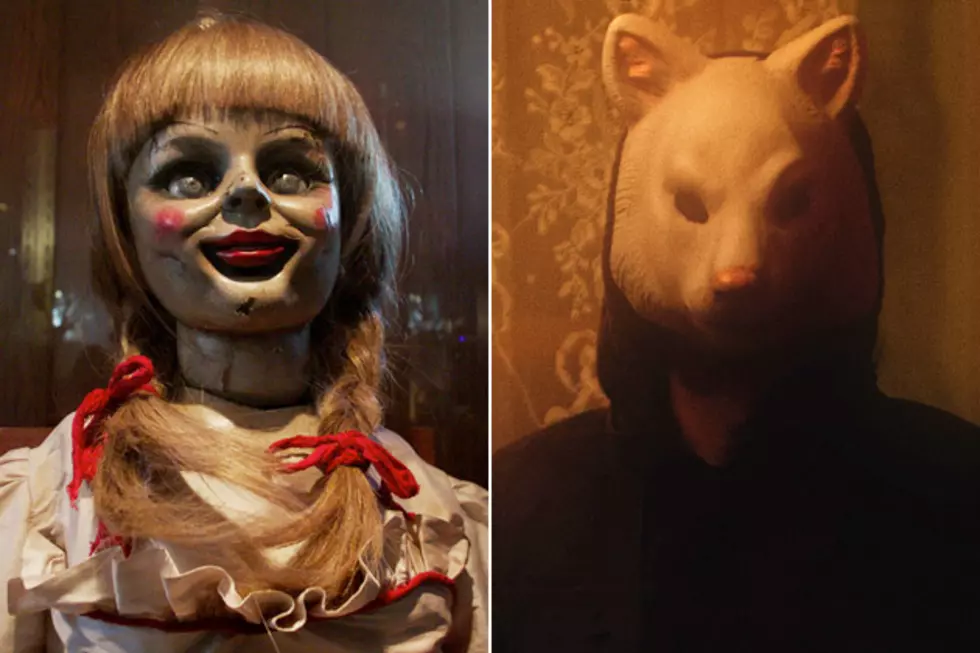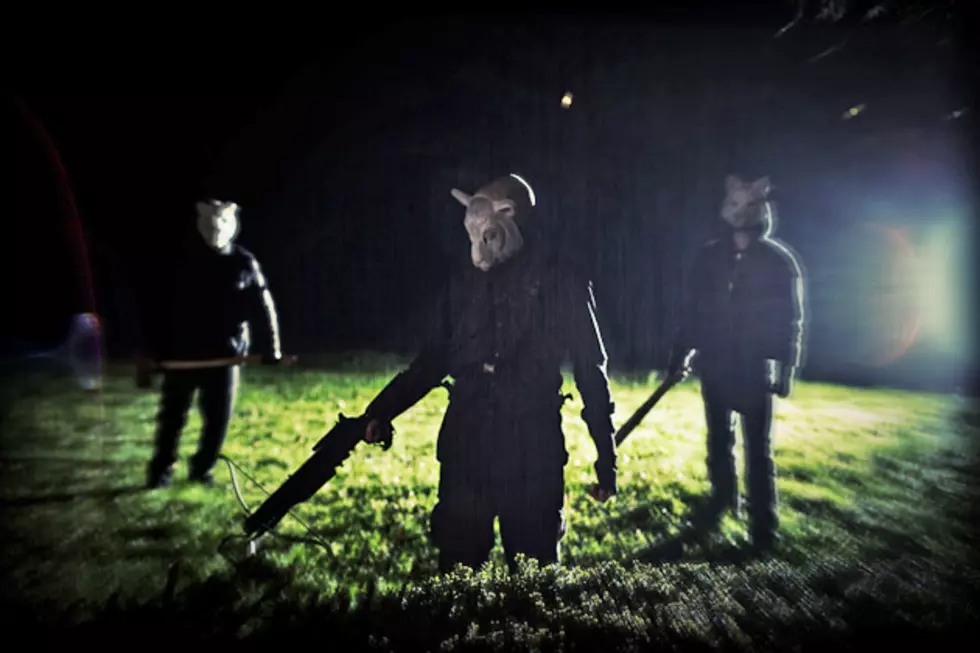
The 10 Groundbreaking Horror Films That Changed Scary Movies Forever
One of the great pleasures of the upcoming 'You're Next' is how it sets certain expectations before gleefully (and bloodily) defying them. It imagines its primary audience is familiar with how home-invasion horror movies tend to play out and takes great pleasure in offering surprise after surprise, creating one of the freshest horror movies in recent memory out of something potentially stale.
Every so often, a horror movie comes along that changes the course of the genre. Sometimes it's quiet and the ripples are gently felt for decades to come. Sometimes it arrives with a bang and filmmakers loudly chase a new trend for a few years. We're not sure where 'You're Next' will fall on the horror pantheon, but we do know that it feels like something special.
Here are 10 groundbreaking horror films that defied expectations and forever changed how audiences and filmmakers approached the genre.
- 1
'The Exorcist'
You could easily divide the world of horror cinema into two categories: before 'The Exorcist' and after 'The Exorcist.' William Friedkin's disturbing story of a young girl possessed by Satan not only kick-started the "demonic possession" subgenre that is still popular today, it established a high watermark of cinematic terror that, in many eyes, has yet to be surpassed. Much of the film's success is due to the fact that it's simply unrelenting and unflinching in its brutality, daring you to keep your eyes open ... or not to pass out, as some audience members did back in the day. Horror movies that set out to shock and challenge audiences like this are commonplace today, but you can thank 'The Exorcist' for making this tactic suitable for mainstream Hollywood filmmaking.
Warner Bros.Warner Bros. - 2
'The Texas Chainsaw Massacre'
In 1978, John Carpenter's 'Halloween' popularized the slasher movie as we know it today, leading to the genre's '80s heyday and inspiring iconic characters, like Jason Voorhees and Freddy Krueger. However, as influential as 'Halloween' was, it's hard to imagine it existing without Tobe Hooper's 'The Texas Chainsaw Massacre,' which single-handedly built the slasher movie template from the ground up. Heck, everything about this terrifying masterpiece feels so confident and unsettling that it's hard to believe it's one of the first of its kind. Could 'Halloween,' which was produced independently and made an insane profit at the box office, have found its success (or even gotten made) if the sordid tale of Leatherface and his cannibal family hadn't beaten it to the punch? We're not sure ... and we don't want to live in a world where that didn't happen.
Anchor BayAnchor Bay - 3
'Frankenstein'
To examine horror cinema that was created when the medium was young is to examine some of the best and most complex the genre has to offer. The cream of the crop will always be the monster movies churned out by Universal Studios during the '30s, and the best of them is James Whale's 'Frankenstein,' which casts the iconic Boris Karloff as the infamous monster. Its scares are tame by modern standards, but it's as creepy and weird as ever; you can feel its influence stretching out to every corner of the horror genre. Karloff's sympathetic portrayal of a character, who could've been a simple creature of destruction, inspired a thousand complex horror villains, and the story of science-gone-awry has been aped by countless movies. If 'Frankenstein' had a nickel for every film depicting a mad scientist creating a being that spends 90 minutes killing off innocent bystanders, it would have about $53.
UniversalUniversal - 4
'Godzilla'
Sometimes people forget that 'Godzilla' is a horror movie. Due to a North American cut that removed much of the film's political commentary and character development, the film has long been viewed as a cheesy joke, a silly movie about a silly monster that wrecked Japan. However, the film's original cut (now widely available) reveals a very different and much better film, a parable about nuclear weapons that confronts Japan's history with atomic warfare with an unblinking eye. 'Godzilla' single-handedly helped create two specific kinds of horror movies: the "giant monster runs amok" films and "nature takes revenge against man" films. Few have managed to do so with as much dignity and despair.
TohoToho - 5
'The Blair Witch Project'
Found-footage horror movies are so prevalent these days that it's easy to forget that they only really hit it big back in 1999. Although the faux documentary approach existed before, most notably with the infamous 'Cannibal Holocaust,' the arrival of 'The Blair Witch Project' was like a freight train slamming into the horror genre. Nothing was ever the same afterwards, as the ongoing success of the 'Paranormal Activity' films proves. Sold (rather brilliantly) as "actual" found footage about three students who went missing while filming a documentary on the titular Blair Witch, the film has all the markings of a modern mockumentary horror movie with less of the BS that has caused some audiences to tire of the format. Any of the 'Paranormal Activity' films wish they were this good.
LionsgateLionsgate - 6
'Jaws'
It's no secret that Steven Spielberg's 'Jaws' forever changed how Hollywood functioned. It's also no secret that this straightforward story of a killer shark wreaking havoc on a small tourist town is one of the best horror movies ever made, a film that proves the genre can be a crowd pleaser unlike any other. There's just something so modern about 'Jaws' that allows it to feel as fresh today as it did nearly 40 years ago ... and we think that's because the vast majority of modern mainstream horror movies are utilizing the film's visual vocabulary, even if they're doing it subconsciously. There is no scare that better defines what modern horror filmmaking is all about than the discovery of the dead body in the submerged boat. You know the one. How could you ever forget it?
UniversalUniversal - 7
'Nosferatu'
Before 'Frankenstein' and the Universal monster pantheon defined horror for an entire generation, there was 'Nosferatu,' a silent horror film whose disturbing power is just as enthralling today as it was back in 1922. A stripped-down adaptation of Bram Stoker's 'Dracula' (names were changed when the filmmakers couldn't secure the rights), the film tells a familiar tale: a vampire aristocrat comes to London, feasts on the blood of the innocent and is ultimately defeated by a team of vengeful hunters. Without sound, the film has to rely entirely on its visuals to terrify the audience, and the result is a film filled with all kinds of iconic and unsettling shots. Although you'll rarely find modern horror movies quoting or citing this one as an inspiration, it's place in cinematic history as the first truly great horror movie cannot be denied. This is the gold standard that every horror movie to which, whether it knows it or not, is trying to live up.
- 8
'Psycho'
Pop culture has a habit of simplifying Alfred Hitchcock's 'Psycho' into a straightforward story of "crazy guy kills people," which is a shame, really. In fact, the only reason Wes Craven's 'Scream' isn't on this list is because 'Psycho' beat it to the punch -- this is a post-modern deconstruction of a horror film before post-modern deconstructions of horror films was a thing. Structured more like a sick prank than a story, the film delights in eviscerating your expectations, spending 45 minutes looking like it's going to zig before zagging so hard in the opposite direction that your brain all but explodes. We're still seeing horror movies that delight in tearing the genre down and building it back up in exciting ways (the wonderful 'The Cabin in the Woods,' for example), but this was the first, and, let's face facts, it's still the best.
UniversalUniversal - 9
'Night of the Living Dead'
Zombies are a thing now, an untouchable cornerstone of modern culture that feels like its always been there. Who can you thank for the existence of 'The Walking Dead' and 'World War Z'? You can thank director George Romero, whose 'Night of the Living Dead' is the reason you know what a zombie is in the first place. There are plenty of reasons this is an important film -- it was an indie horror movie decades before indie horror movies hit it big, it's still a terrific and scary movie, it's African-American protagonist feels years ahead of its time -- but above all, it introduced flesh-eating walking corpses to American audiences. Although zombies exist in various mythologies and folk tales, the concept of the shambling undead with a taste for brains and can only be killed by a blow to the head is all Romero. Him and his movies are from where all modern zombie movies stem. You are not a true zombie fan unless you're familiar with Romero's work, and you're definitely note familiar with Romero's work until you've seen 'Night of the Living Dead.'
- 10
'Alien'
On paper, it sounds about as hacky as you can get: "What if you took a haunted house movie ... but put it in space." The initial pitch for 'Alien' doesn't sound like a surefire success, but there's no denying the profound impact Ridley Scott's sci-fi horror movie has had on all of genre cinema. The idea of blending genres, of making a straightforward horror movie in a science-fiction setting, is a common one today, but it certainly wasn't back in 1979. Although 'Alien' routinely lands in the sci-fi category, it's a horror movie at heart, a monster movie that just so happens to be set on board a spaceship instead of in an abandoned mansion or small town. However, the fact it plays in both genre playgrounds so perfectly makes it something very special, and countless movies have tried to replicate its success with mixed results.
20th Century Fox20th Century Fox
More From ScreenCrush









